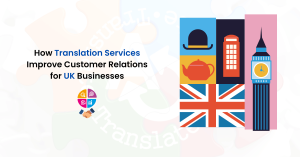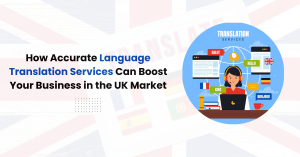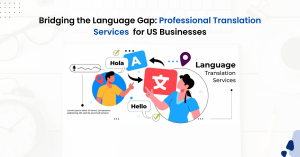While we discussed scammers pretending to be professional freelancers in our previous article, this one aims to spread the word about scammers claiming to be a member of a translation agency. For this, they either choose to make up a fake company or pretend to work with an existing and renowned one.
There are three things a scammer might want to obtain from their victim:
- A free translation
- Their money
- Their CV
How they try to get a free translation:
In this case of fraud, the scammer contacts their victim via email and pretends to be a professionaltranslation agency having a job for them. As it is standard practice in this business to pay a freelancer after they delivered the translation, the professional translator will not notice the fraud until the point where they have already sent the translated document to the alleged agency, but did and will not receive any payment for the job.
This way, the scammer ends up with a free translation they can sell to their client while the freelancer is left with nothing.
Note: Legitimate agencies that are simply behind with making a payment to their freelancers do not fall into this category.
How they try to get money:
Just like in the case above, the scammer, claiming to be a member of a professional translation agency, contacts their victim and offers them a job. This time, they even offer the freelancer advance payment in the form of a cheque. Once received, the sum happens to be much higher than agreed upon. The scammer will apologize for the mistake and ask the freelancer to simply cash the cheque and then wire back the difference as this was the easiest solution. However, once the bank realised that the cheque has been stolen (or is invalid in another way) and took away the money from the freelancer, the scammer will be long gone.
Another way is to offer the translator a steady work flow. As a condition they have to buy some CAT-tool that apparently is necessary for completing the upcoming assignments. Of course, once a payment has been made, there will never be any product or incoming jobs.
How they try to get a CV:
In our previous article we already explained what a scammer will do with a professional’s CV – steal their identity and accept jobs in their names. However, they might not only steal published CVs from networks like ProZ.com, but also directly ask the freelancer for it. They might contact them saying they are a professional agency and would like to market the translator’s CV. They ask them to sign an agreement, giving the scammers the right to contact clients in their name and sending them their CV. However, scammers do not care about whether someone signed the agreement or not. They will simply take the CV and change the contact details to link it to them. Then they take jobs in the professional’s name and deliver poor quality translations. When confronted, they might even argument that the signed agreement gave them the right to act this way.
While scammers get smarter and their attempts of fraud harder to recognise, the following tips will help you to prevent becoming the victim of one of their scams:
- Have a look at the job description. While real agencies will give you relevant details only, scammers often give a lot of unnecessary information trying to sound convincing. Also, poor English might be an indicator for a scam, e.g. if the email is allegedly coming from an agency based in a native English speaking country.
- Make sure to receive an accurate purchase order before doing a job.
- Check the agency’s contact details online to see if they match the ones in your email. Have a close look at email addresses and do not miss out on any details, e.g. scammers might use an address like info@real-agency while the accurate one would be info@realagency. Additionally, you could give theagency a call and verify if the person who contacted you actually works there.
- Google the contact person and agency name. Maybe their names already appear in multiple online forums discussing their previous scams.
- On websites like Utrace you can track a company’s location by pasting their IP address or domain into the search bar. If an agency claims to be based in one country, the search result should not determine the company’s location in another country.
- A fast and easy way to find out if someone has been connected to a scam in the translation industry before is to look up their name in João Roque Dias’s Scammers Directory.
TRANSLIT takes spam and scam very seriously and uses verification procedures before hiring and assigning any work to recruited freelancers. Personal details, Facebook and LinkedIn pages are being checked. In some cases Garda vetting procedures take place. In addition, our freelancers sign confidentiality, non-disclosure and professional conduct agreements. TRANSLIT monitors the blacklists of agencies and freelancers mentioned above and verifies if the name of a new applicant appears in any of them.
The only way to approach the problem of an increasing amount of cases of fraud in the translation industry seems to be spreading the word about it. Make sure to talk about it, share your experience in forums and disarm the scammers by exposing their tricks. Let’s help others by calling their attention to the matter and informing them about how not to play into a scammer’s hand.
Author: Antonia Liebl







